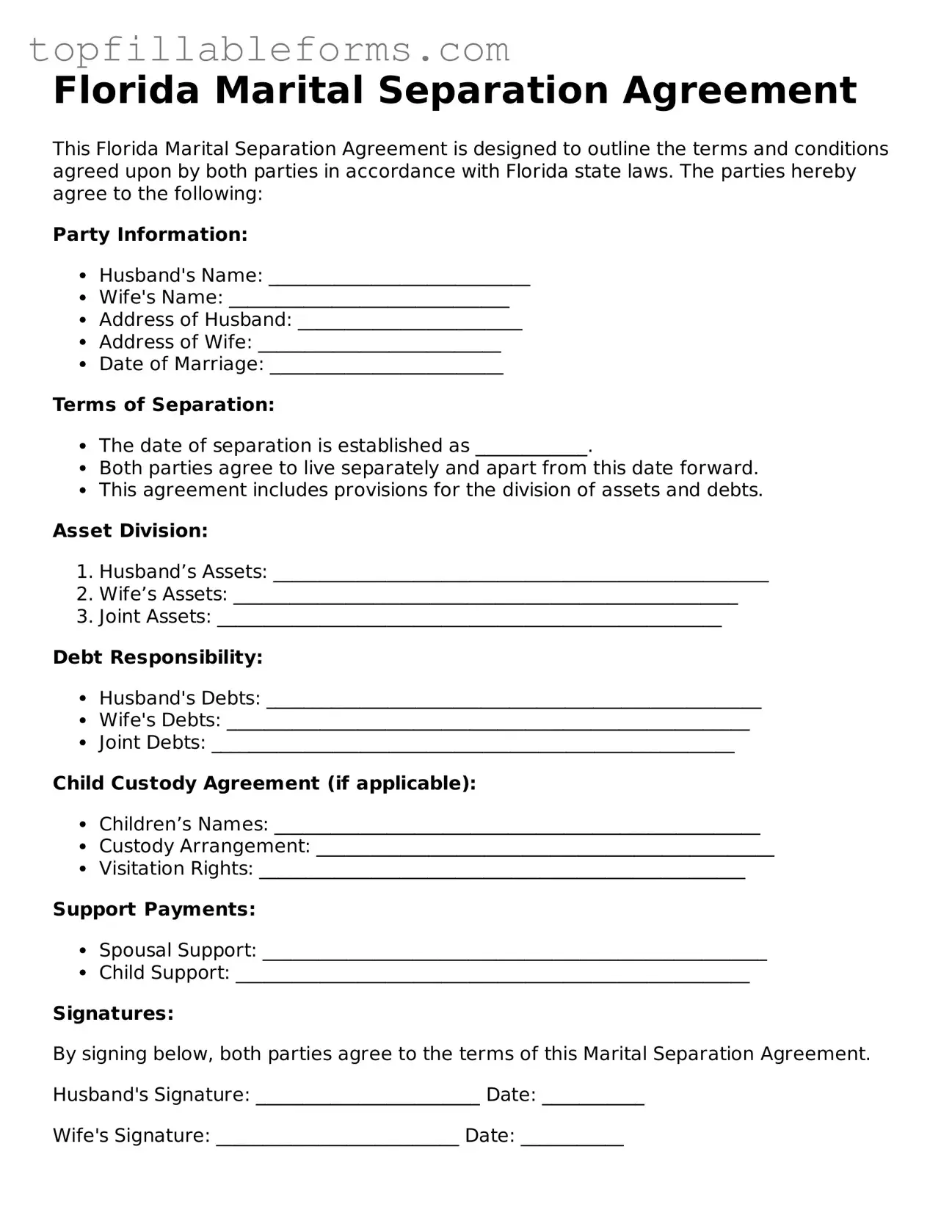Attorney-Verified Marital Separation Agreement Template for Florida
A Florida Marital Separation Agreement form is a legal document that outlines the terms and conditions agreed upon by spouses who wish to live separately while remaining legally married. This agreement can cover various aspects, including property division, financial responsibilities, and child custody arrangements. By formalizing these agreements, couples can create a clear roadmap for their separation, ensuring that both parties are on the same page.
Open Marital Separation Agreement Editor Here

Attorney-Verified Marital Separation Agreement Template for Florida
Open Marital Separation Agreement Editor Here
Finish the form now and be done
Finish your Marital Separation Agreement online by editing, saving, and downloading fast.
Open Marital Separation Agreement Editor Here
or
▼ PDF File
